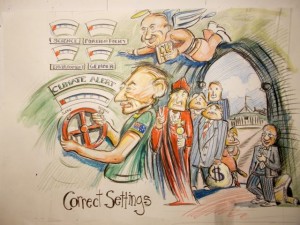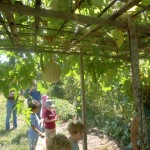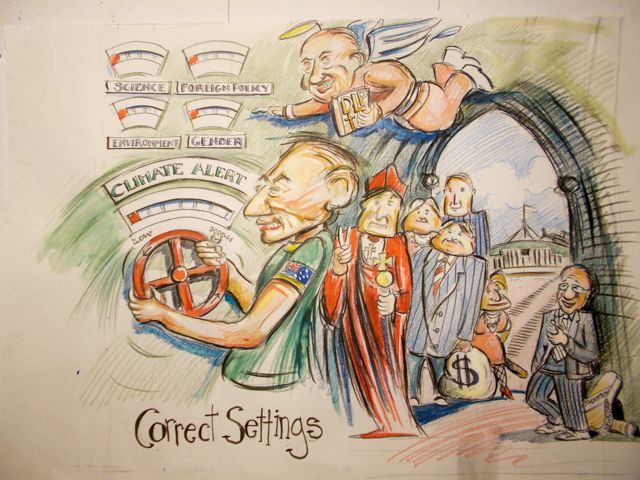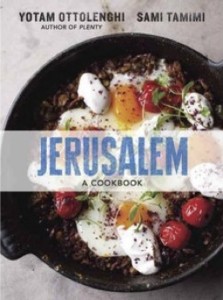More wickedness from Errol
“I am sour on women but cannot do without them and I need them incessantly so as to feed my sourness” From My Wicked Wicked Ways. 1959
THIS PAST WEEK in Passive Complicity
 Saw the introduction of Corridors of Power by Sir Bertram Postule.
Saw the introduction of Corridors of Power by Sir Bertram Postule.
‘When we, the (Christian) Crusaders, arrived at the gates of Jerusalem (1096) we were confronted with something wholly new; a tolerant, civilised and sophisticated society. All of the great disciplines, Philosophy, Mathematics, Science and Medicine were available for study, and a rigid code of honourable conduct was practised. There was no discrimination whatever..’ wrote Tarquin O’Flaherty in the fourth instalment of ‘Man as Machine’. A conclusion – of sorts
From there we looked at ownership in Owning Food, Owning Recipes, with an extract from Jerusalem, A Cookbook by Sami Tamimi and Yotam Ottolenghi. They argue that attributing ownership to foods and recipes is fraught with difficulty, as recipes and food owe so much to our forebears and to our cultural mixing.
Cecil Poole is on again about food, firstly with a story of a regular food drive in Food PORCH, which explains the operation of this charity and the joy the volunteers get from the giving and doing. The second, Food and Refugees, talks of a visit to Transplanting Traditions Community Farm where it appears that the local community actually sees some value in refugees for who they are!
Paddy 0′Cearmada took a critical eye to censorship in Art and the Censor. “Rather than ask what it is that Paul Yore is proposing to us about a corrupted world, he is instead excoriated as corrupt by self-appointed guardians and in the case of the Sydney Art Fair they impose untested law backed by a powerful Patron of the Arts who without hesitation declares what we can see.”
Saturday’s MDFF, Manifest Destiny and American Indians Manifest Destiny, looks at the link between the Doctrine of Discovery and the evolution of the concept of Manifest Destiny. Of how religion was used to underpin the expropriation of aboriginal land to Christian Europeans.
Poetry Sunday brought Dylan Thomas’Fern Hill, about which our poetry editor, Ira Maine said: “‘Fern Hill’ is an astonishing evocation of a childhood spent in the country, an irresistibly soft and magical place, full of streams and horses and sunbeams, the sweet scent of hay and perfumed and dappled shade.”
And, dear reader, please feel free to add comments about this and any of our postings.
Regards
Cecil Poole










